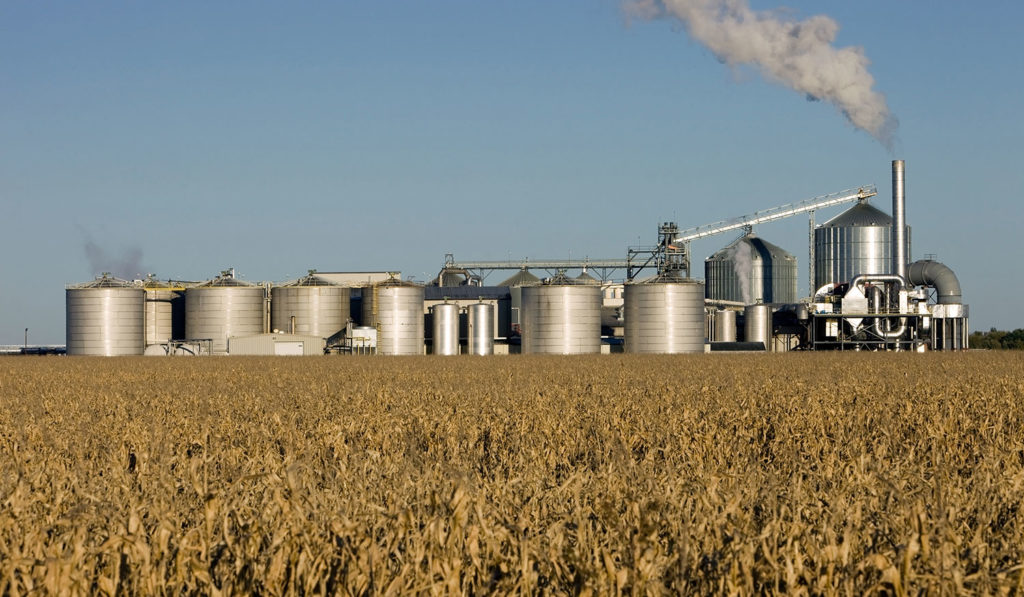Biomass: economic value vs. price
How can we quench our desire for energy, but produce it more sustainably?

Biomass: economic value vs. price
How can we quench our desire for energy, but produce it more sustainably?The price of fuel has hovered around $50 a barrel for more than two years, a far cry from 2011 when it was more than $100 a barrel, and gas cost nearly $4 per gallon.¹ So, what will it take for our energy-gulping society to understand that low prices can only last for so long, especially as the world’s thirst for oil continues to grow? How can we quench our desire for energy, and produce it more sustainably?
Some automotive companies are working to curb oil demand with the creation of electric and hybrid vehicles. Tesla, which only produces electric vehicles, has been quite successful, despite their higher sticker prices. The company’s recently-launched Model 3 has a 220-mile range, and starts at a more reasonable $35,000. And Volvo announced in July that all their models will be available in electric versions by 2019.²
As we look to the future, what becomes more important — price or value? Should results be measured by current market price or long-term value?
I believe that for the long-term benefit of society, it’s not the price per gallon that we need to focus on, but the value that research and innovation can bring by developing renewable forms of energy. Research and innovation bring new ideas and solutions, which will drive prices down in the long term.
Today, the cost to develop newer, cleaner technologies is still higher than producing fuel the way we have for nearly a century. But Tesla, Volvo and other manufacturers are reacting to a consumer demand that’s pushing them toward the future. These companies are working to improve the new technology, and make it more affordable.
Traditionally, it’s been cheaper to produce auto fuel from petroleum than ethanol from corn. However, according to a recent Biofuels Digest article,this model is shifting too. Now, higher-octane fuels are actually less expensive to produce. The article points out that — at the pump — premium fuel costs $2.88 per gallon, but E30 (93 grade) ethanol costs just $2.09.³
In past columns, I’ve talked about Pellet Technology using biomass to create feedstock pellets, as well as DuPont creating Sorona®, a fiber used in making clothing from biomass. However, one of the main uses of biomass has typically been ethanol.
Ethanol is renewable, cleaner and has a higher octane. According to the Oak Ridge National Laboratory, energy crops and crop residues could provide 13 percent of the nation’s motor fuel. And a UK-based biotechnology firm, Green Biologics, believes the same feedstocks could replace 100 percent of petrochemicals (chemicals made from petroleum) with bio-chemicals.
According to ICIS Chemical Business Magazine, chemical companies believe replacing dependence on petrochemicals with an alternative made from biomass will help create a sustainable feedstock supply and make chemicals greener. And biotechnology firms believe that, theoretically, all traditional petrochemical production could be replaced with bio-chemicals.4 The question is, is it economically viable to produce them?
At AGCO, our biomass solutions team works to lead these cutting-edge, innovative technologies, while bringing value and supply chain solutions to companies that need biomass (corn stover) to operate their business.
As the harvest season nears, we will be working with numerous biomass companies to provide the bales of biomass residue that power this renewable operation. One of our key components — the Hesston® high-density square baler – produces the high-density bales that lead to better project economics.
Though the cost of biomass production may be higher on the front end, the back-end rewards for our society and our environment are far greater. Most importantly it will reduce the need for petroleum and help provide renewable energy for generations to come.
References:


